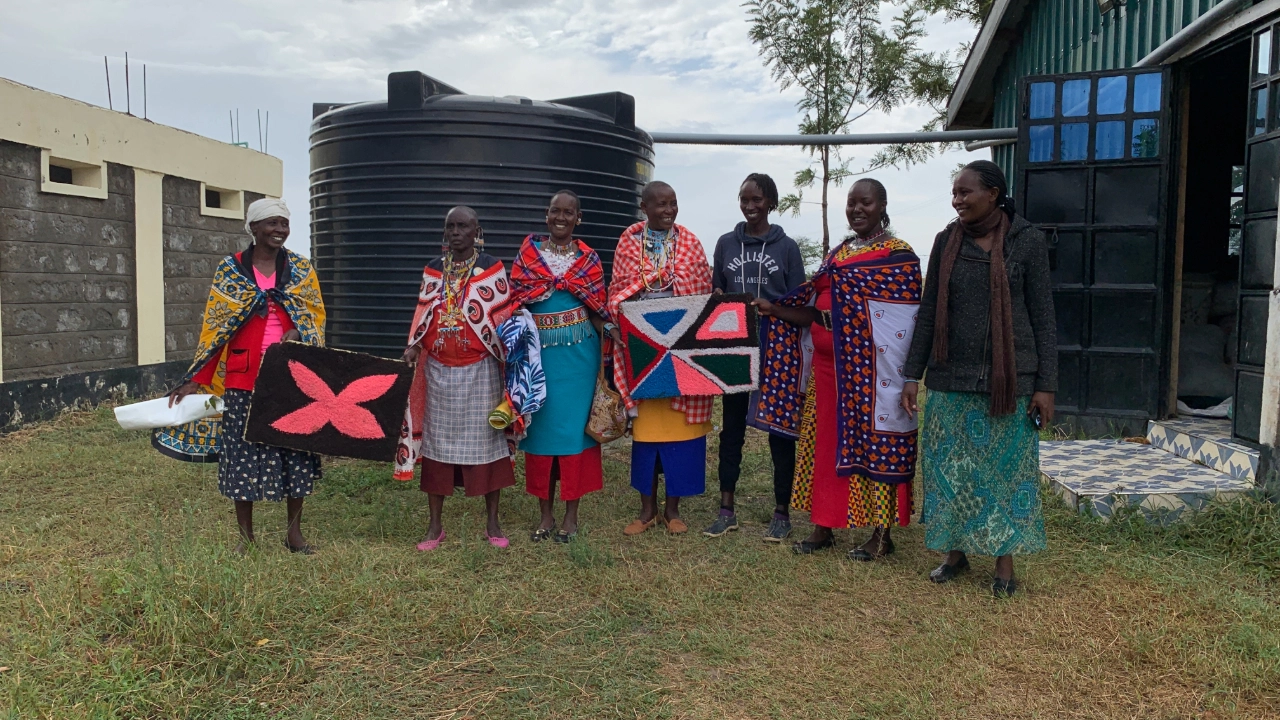Reformed cutters and FGM survivors at Illaramatak Community Concerns, Inkinyie, Kajiado county, Kenya.
Read 6 minutes
A quiet revolution is underway in Kenya’s Kajiado County. Women who once wielded the blades used to perform circumcisions on other women now wield knowledge, economic power, and a new vision for their daughters. The driving force behind the transformation is Illaramatak Community Concerns, an organization committed to ending female genital mutilation (FGM) and empowering women through economic independence.
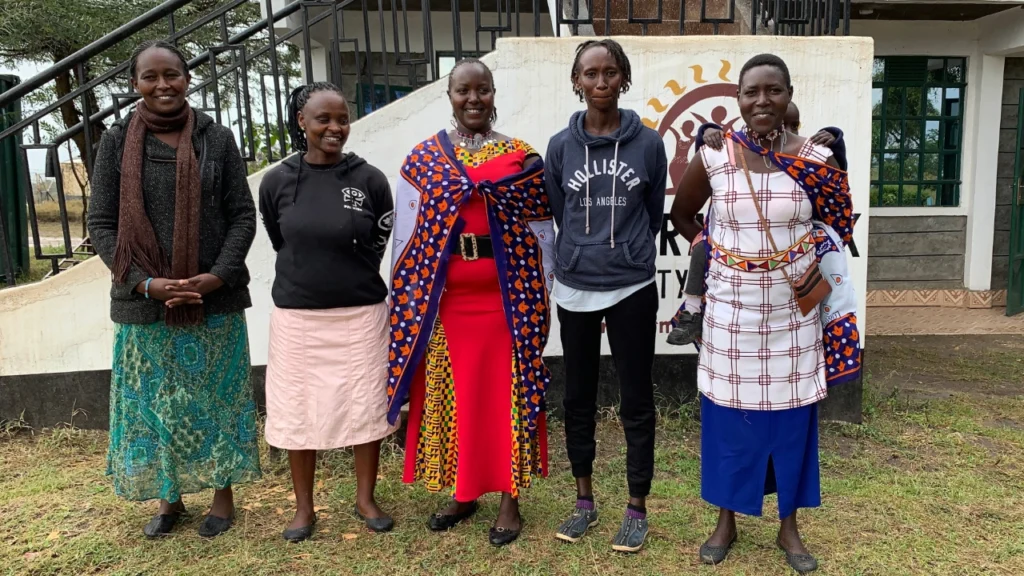
The fight against FGM
For decades, FGM was an unquestioned rite of passage for girls in the Maasai community. But Tulasha Toirai, once a FGM cutter, is now helping lead the charge against the practice.
“We went through a capacity-building process and awareness of the effects of female genital mutilation on women and girls,” said Toirai.
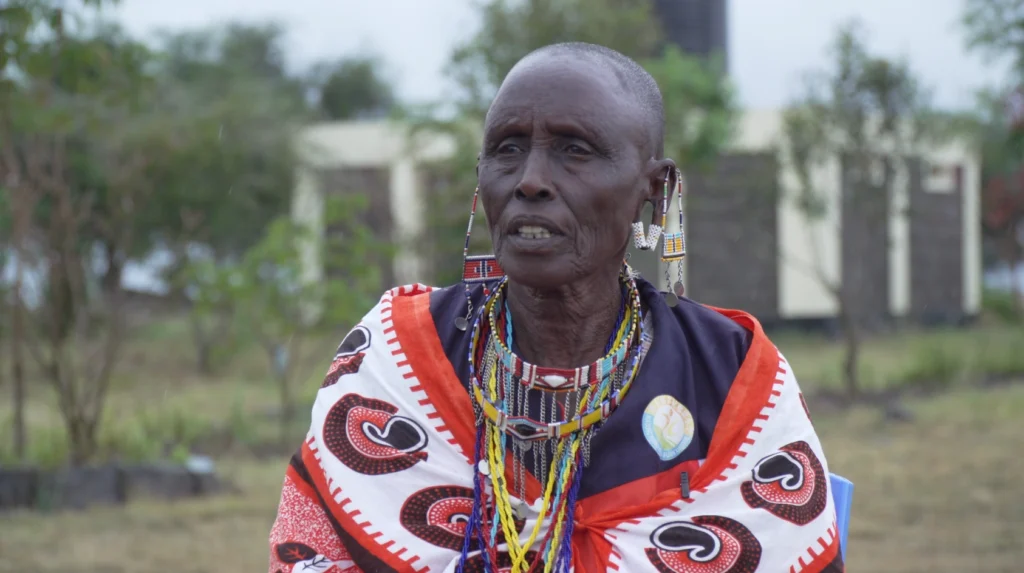
“FGM was risky to us as practitioners. We were at risk of contracting contagious diseases like HIV and AIDS during the practice. But now, I sell milk and create beaded jewelry. These are sustainable businesses,” Toirai pointed out the risks borne by the cutters, adding that “I don’t have anyone pressuring me to circumcise a girl. I am relieved.”
Like Toirai, Yiapoyo Sanoe, another reformed cutter, advocates for change as well.
“We taught girls that if they hear of a girl at risk, they must report it to the police or chief. FGM has no meaning or purpose at all.”
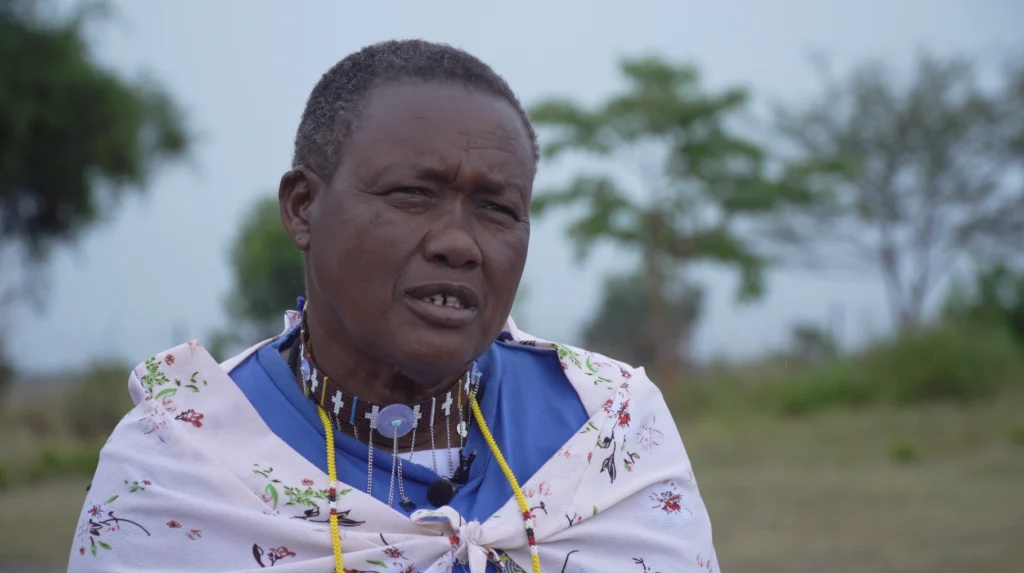
“I have had a lot of peace and happiness seeing young girls thrive in their endeavors without undergoing female genital mutilation,” Sanoe added.
Milk, not marriage
Economic independence has proven to be a game-changer in the fight against FGM. One of Illaramatak’s most successful initiatives is a milk chilling center located within its compound, where local women sell cow milk to the organization, who in turn sell to a major dairy company in Kenya.
“We buy milk from the women at 42 shillings per liter (33 U.S. cents) and sell it at 44 shillings (34 U.S. cents), ” explained Joseph Kasere, the manager of Illaramatak Community Concerns, “The two shillings help run the facility.”
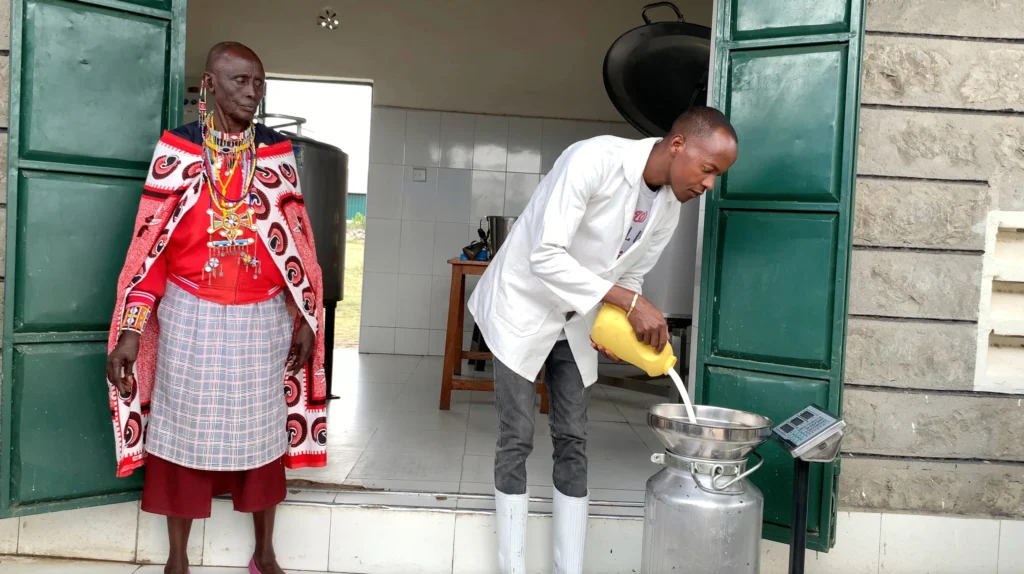
“Milk production is seasonal, so we need other income sources,” Kasere added, “We’re working on introducing dairy farming to ensure consistency in production.”
Beyond milk, the organization also buys and sells animal skins, ensuring women have multiple streams of income.
Education Over Exploitation
By sponsoring over 200 girls to school, Illaramatak also empowers women through education. The organization provides a lifeline for those rescued from child marriage and FGM.
Patricia Leiyan, a survivor, recalled her painful experience. “I was 12. It was forced on me. The pain—physical and emotional—was unbearable. But I was lucky I stayed in school. Many didn’t,” said Leiyan.
Now a mother, Leiyan is determined to protect her daughter. “She will never go through what I did. Thanks to Illaramatak, we are empowered. We farm mushrooms, and vegetables, and earn a living,” said the woman.
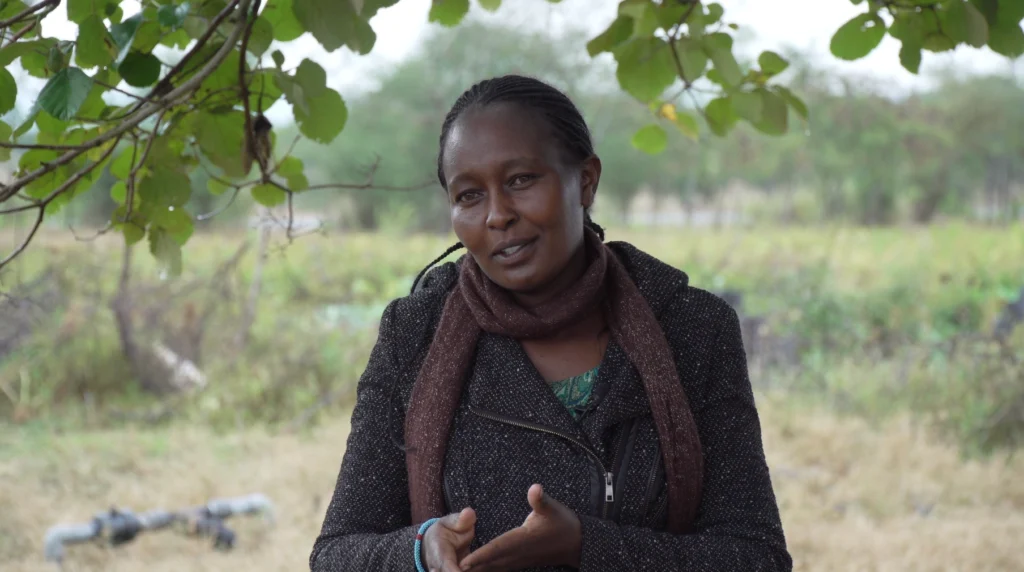
Another survivor, Dorcas Saina, was not as fortunate as Leiyan. Circumcised at 13, she was told that she had become a woman and was ready for marriage. She dropped out of school and had her first child at the age of 16.
“I wanted to be a doctor, but my dreams were cut short,” said Saina.
It never rains but it pours. Apart from the hurt from FGM, Saina also experienced gender-based violence.
“My husband used to bully me all the time. Whenever I said I wanted something, we would start fighting. He would ask me don’t I see myself as a burden? When will you ever bring something to the table? You’re always asking for something,” Saina recalled her painful memory.
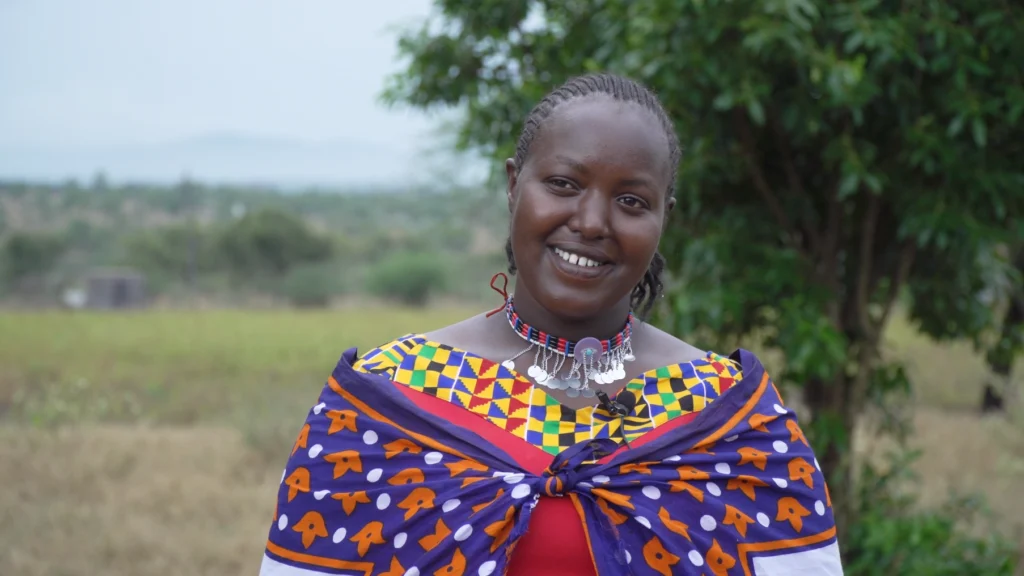
Now, she speaks out against the practice. “We see the difference. Girls who weren’t cut are graduating, and we attend their ceremonies. It gives us hope,” said the survivor.
A Shift in Culture
Kenya has taken several measures to eradicate FGM. The government banned FGM in 2011. Offenders are imprisoned for a minimum of three years, face a fine of 1,000 U.S. dollars, or both. It also established The Anti-Female Genital Mutilation Board and made 12 commitments to end GBV and FGM by 2026 at the Generation Equality Forum.
However, the practice persists. The prevalence of FGM in Kajiado County, for example, stands at 63 percent according to the Kenya Demographic Health Survey 2022. FGM causes several immediate and long-term complications, including excessive bleeding, infections, increased risk of childbirth, psychological problems, scar tissue, or death.
“When our girls went to give birth, they almost always needed C-sections—the damage was too severe. But girls from other tribes delivered naturally. Why was this happening to ours? That question changed everything. So we stopped FGM.” said Sanoe.
Illaramatak’s Joseph Kasere has seen the shift firsthand.
“Reformed cutters like Tulasha and Yiapoyo have been key in dismantling this harmful tradition. They hold meetings, speak at events, and engage with elders. It’s slow, but the mindset is changing,” said Kasere.
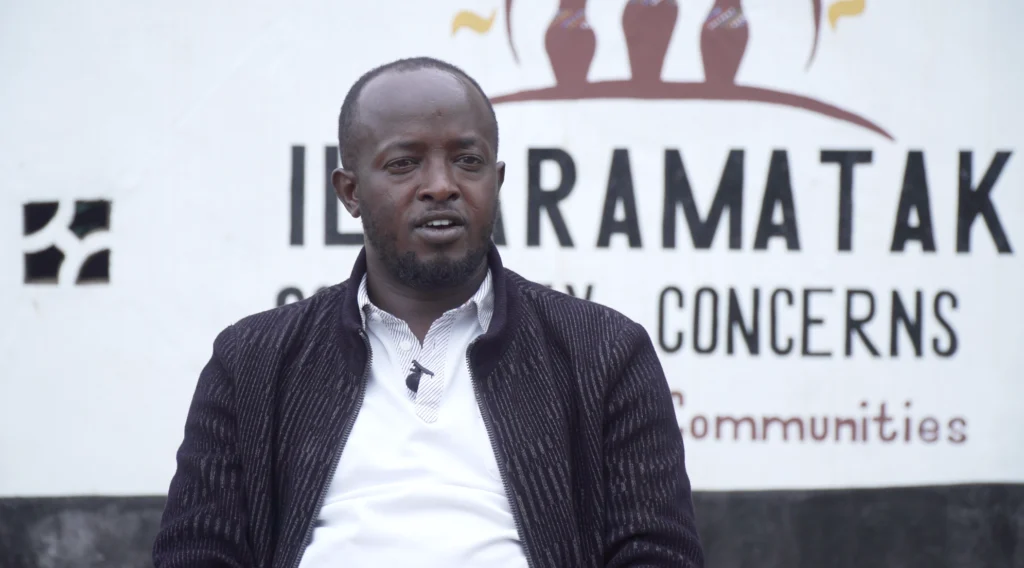
“FGM used to be a secret practice. Now, the community is openly discussing its dangers,” Kasere explained, “Even young men have begun rejecting the idea that a woman must be circumcised to be worthy of marriage.”
But challenges persist. Some families take girls across the border to neighboring countries for the procedure. Others secretly carry out the cut at night. For this reason, Illaramatak strictly advocates for education as the only form of transition into womanhood.
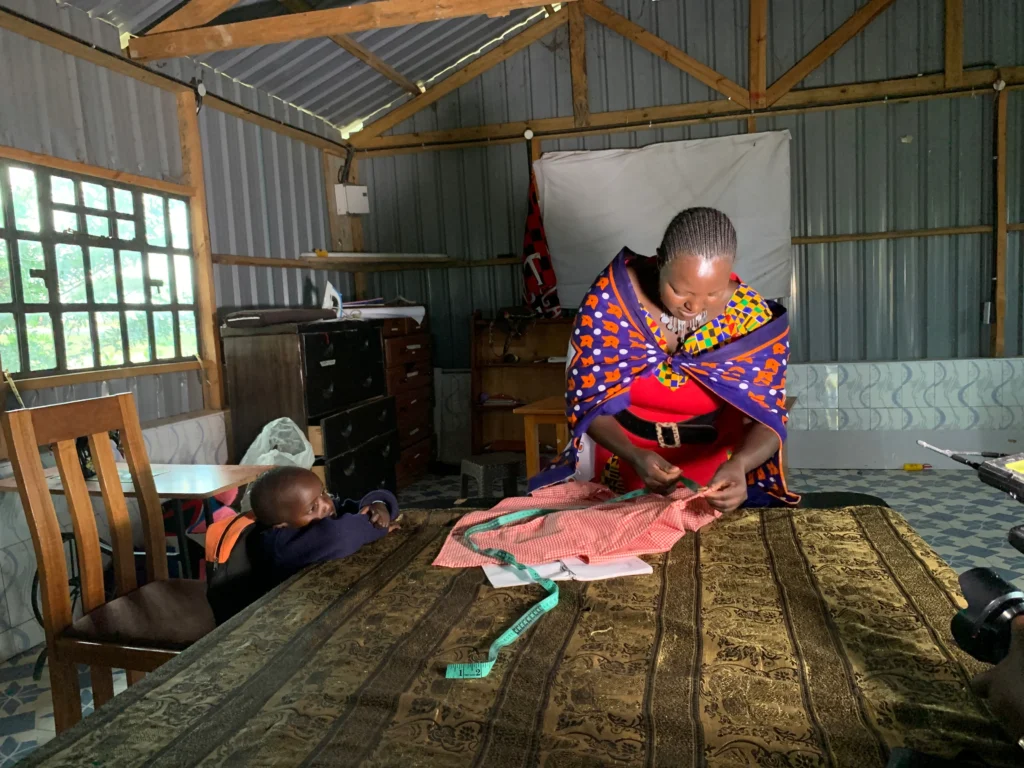
Vocational Training: ‘Cut the garment, not the girl’
To support women in finding alternative sources of income, Illaramatak runs a vocational training center under the slogan “Cut the Garment, Not the Girl.” At the organization, women learn tailoring, beadwork, and other skills that provide sustainable livelihoods.
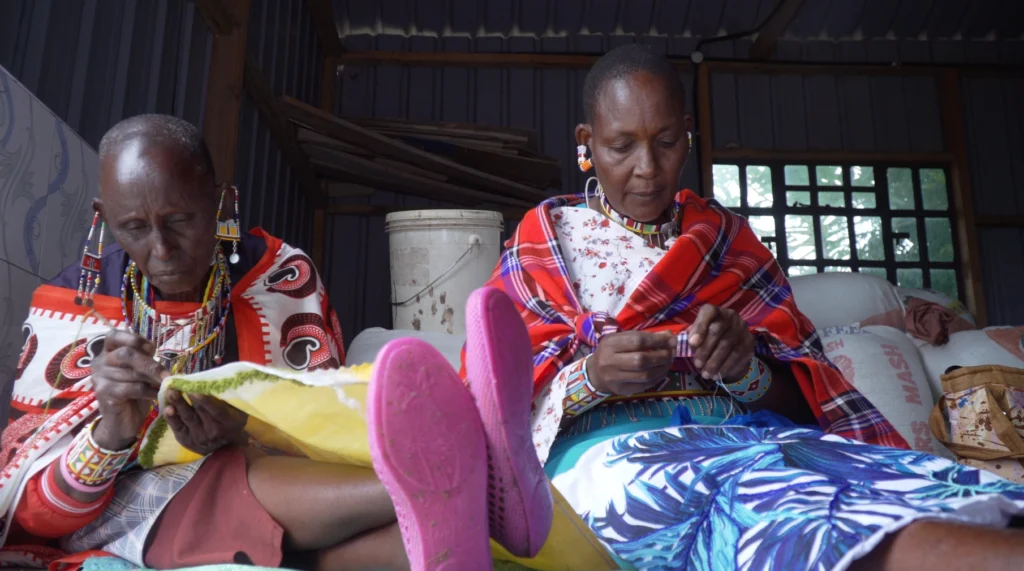
“I used to earn from the practice. But after training and warnings from the chief, I quit FGM,” Toirai said, “Now, I see girls thriving, and it makes me happy.”
In addition, they also farm vegetables and mushrooms in the community land and sell their produce to the market.
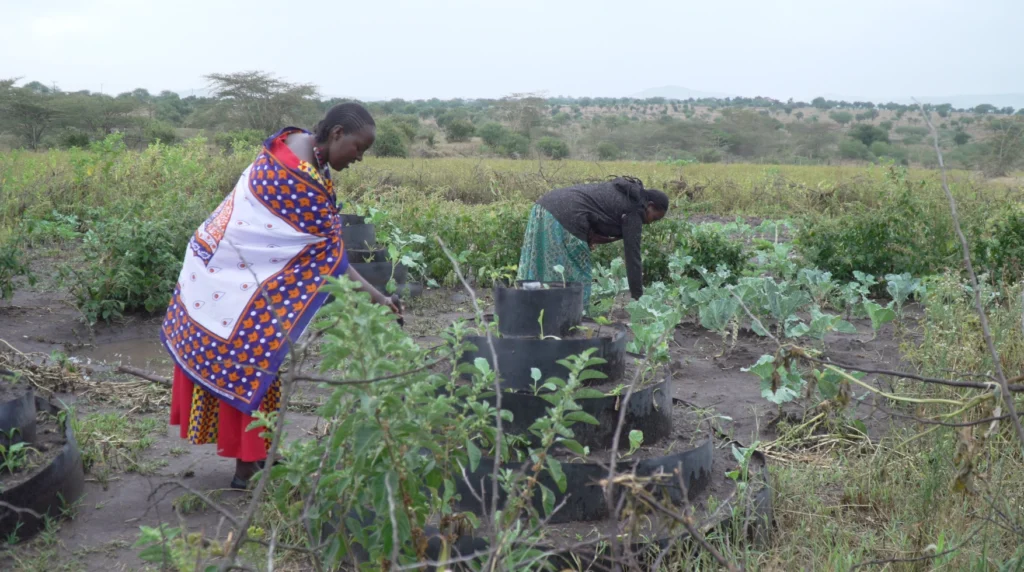
Looking Forward
The Maasai women of Kajiado have traded the blade for a better future—one where girls grow up educated, empowered, and free.
“We had several community meetings regarding the abandonment of Female Genital Mutilation,” said Toirai, “As reformed cutters, we created awareness among community members on the effects of FGM. We were happy to see our community transforming and abandoning FGM.”
With each girl who stays in school, each woman who finds a new source of income, and each community that rejects the blade, the revolution grows stronger. And for the women who once held the knife, their new tools—needles, beads, and milk pails—are carving out a different kind of legacy: one of hope, resilience, and a future free from FGM.
Post Views: 100

